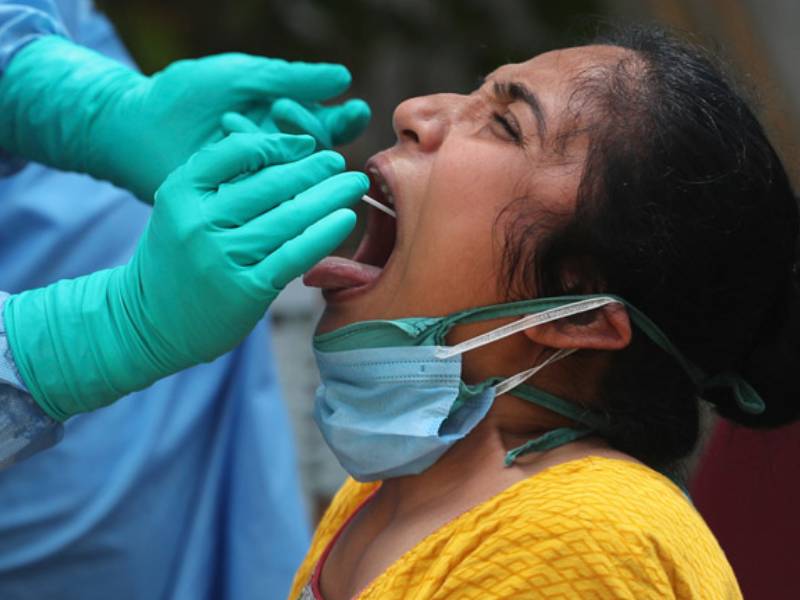Reinfection with COVID 19: What we need to know
By Newsmeter Network
Hyderabad: Covid-19 is caused by SARS-CoV-2 virus, declared a pandemic in March 2020. It is a highly infectious disease and spreads easily from one person to other.
Social distancing (6 feet), hand washing with soap water or alcohol-based hand rub and use of face mask prevents spread of infection.
Infections occur in all age groups but the severity has been reported more in patients with underlying diseases like BP, diabetes, heart problems, kidney problems and those with low immunity like cancer patients.
Symptoms may develop within 2 days to 2 weeks following exposure to the virus and mean period is around 5 days.
People who do not have any symptoms but test positive are called asymptomatic carriers.
Infection can be diagnosed by PCR on nasopharyngeal swab or nasal and oropharyngeal swab. Immediately after the onset of symptoms PCR will be positive, RTPCR is the gold standard for diagnosis of Covid-19 infection.
Persistence of dead virus in respiratory samples may lead to false-positive results in patients who have recovered completely and cleared the virus. These patients are no longer infective to others.
Role of antibodies: IgG antibodies to SARS-CoV-2 develop in some patients, a few weeks after infection. However, not all patients develop antibodies and how much immunity they give against reinfection is still unclear.
Studies have shown that like all respiratory viruses, there will be immunity against the virus for about 3-4 months. How much protection is there after that is not clear presently.
What is meant by reinfection- Occurrence of infection in previously positive patients after complete recovery.
When can we call case as reinfection- New onset of symptoms typical of Covid-19, RTPCR positive and the virus must be the cultivable following complete clearance of virus from the previous infection or infection with a molecularly proven different strain. Reinfection has been reported recently from Hong Kong and in India (Telangana). Whether the reinfection causes more severe disease or mild one needs to be seen and may vary from person to person.
Some studies have reported two separate symptomatic Covid-19 episodes, associated with viral detection and no evidence of a differential diagnosis, forming two pathophysiological hypotheses underlying these recurrences: viral reinfection or viral reactivation.
A re-infection due to the prolonged exposure to virus-like in healthcare workers may occur.
Reinfection and relapse - Reinfection is a new episode whereas relapse is viral reactivation after a few days of improvement.
Covid-19 recurrences should be differentiated from secondary complications such as pulmonary embolism or superinfection or persistence of traces of viral RNA that can be detected in respiratory samples up to 6 weeks after onset of symptoms in clinically cured patients.
Immunosuppressive factors such as drugs or pathological conditions could contribute to impairing viral clearance and favour SARS-CoV-2 reactivation.
As this disease is new and every day, new scientific learnings are coming out, as of now we can say that reinfection is possible and proper precautions need to be taken to protect self.
References:
1 COVID-19 and Post-infection immunity Limited Evidence, Many Remaining Questions
Robert D Kirkcaldy, MD, MPH; Brian A King et al
JAMA. 2020; 323(22):2245-2246. doi:10.1001/jama.2020.7869
2 Journal of Infection -Letter to the Editor Clinical recurrences of COVID-19 symptoms after recovery: Viral relapse, reinfection or inflammatory rebound?